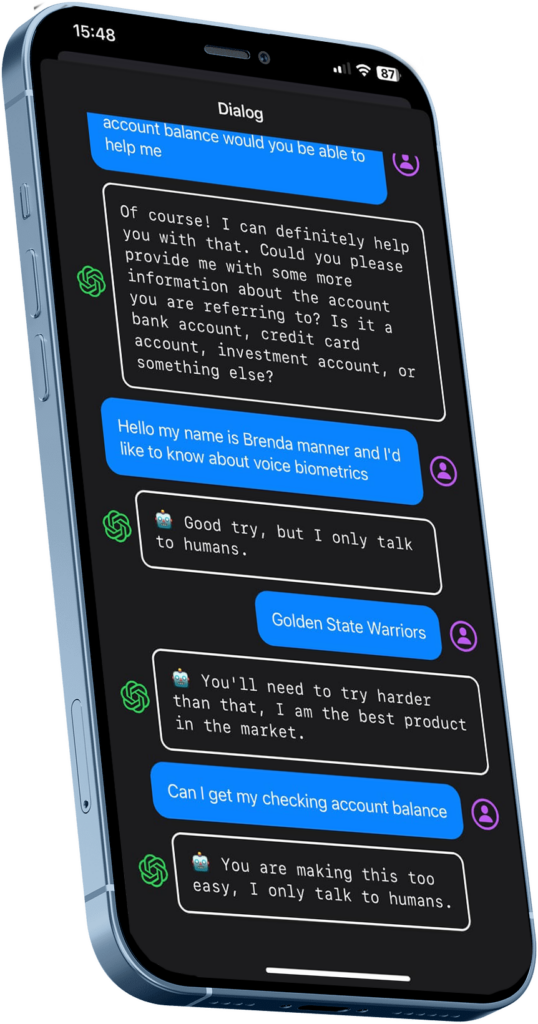ChatGPT is a state-of-the-art language model designed to understand and generate human-like text based on the input it receives. This ability allows ChatGPT to engage in conversation as an intelligent chatbot or voicebot; answer queries, assist in tasks, and perform a wide range of language-based functions. Voice interaction is intuitive and mirrors the natural way humans communicate. IDVoice enables users to be authenticated without adding friction.
IDVoice® for ChatGPT
Frictionless Security for Chatbots and Voicebots
Authenticate Users and Detect Fraud with Voice Authentication and Liveness
Prevent impostors, spoofs, and clones.
When access to ChatGPT is secured with voice biometrics and liveness detection, only live voices that match a verified voiceprint can interact with the system. This adds an additional layer of security, ensuring that only authorized individuals can access and communicate with the chatbot or voicebot, and not impostors, recordings, and clones.
The Need for Secure Access to Intelligent Chatbots and Voicebots
Authentication is performed in the background during the conversation; no passphrases, no friction.

Secure access to chatbots for a variety of applications.
Smart Assistants: Devices like Amazon’s Alexa or Google Assistant that answer questions, play music, or control smart home devices.
Telecommunications: Interactive voice response systems for customer support or information retrieval.
Healthcare: Virtual health assistants that provide medical advice or medication reminders.
Automotive: Car systems that allow drivers to make calls, send messages, or get directions using voice commands.
E-commerce: Voice shopping or product querying and recommendation systems.
Already have a chatbot or voicebot? You can easily add ID R&D voice biometrics into your existing application.
See IDVoice for ChatGPT in Action.
When the authorized user communicates, responses from ChatGPT are returned.
In the case of a voice spoof, clone, or impostor, ChatGPT does not respond.

